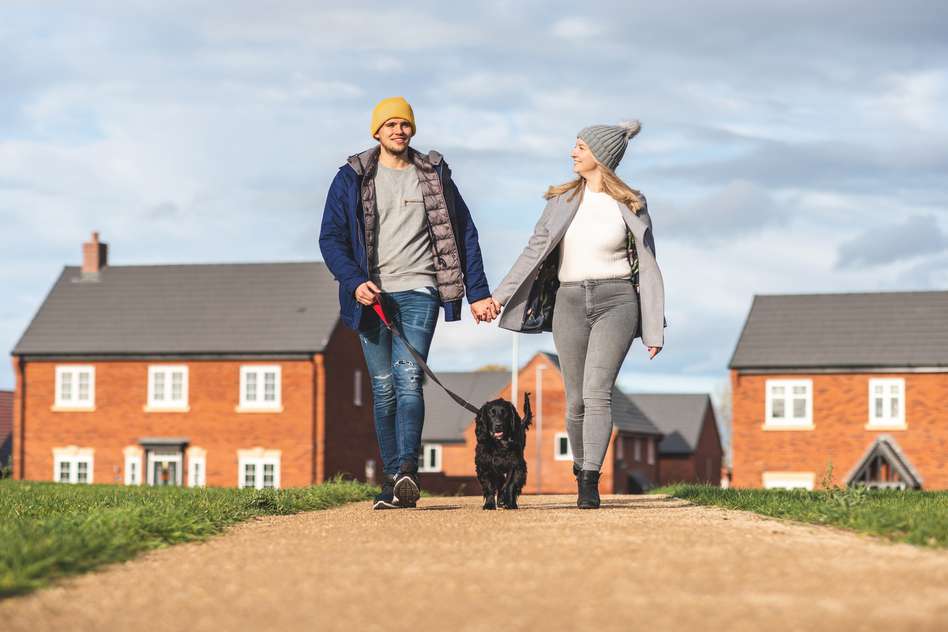Shared Ownership: How to get on the housing ladder

Shared ownership can be a way of getting onto the housing ladder for many people. But, there are a few things you should consider first.
- What is shared ownership?
- Who is eligible?
- Buying a shared ownership property
- Will I have to pay Stamp Duty Land Tax?
- What is a Maintenance Charge?
- Can I let the property?
- Selling a shared ownership property
- What other things should I consider?
What is shared ownership?
Shared Ownership is a form of affordable housing. The term ‘shared ownership’ encompasses schemes where a registered social housing provider grants a lease of a percentage share of the property and rents the remaining percentage to the tenant. Shared ownership homes are offered by housing associations, local councils, and other organisations. They are called ‘providers’ or the landlords.
From a conveyancing perspective, the transaction is still dealt with by solicitors, and the usual conveyancing and mortgage costs are still payable when you opt for a shared ownership purchase.
Who is eligible?
You are only eligible to purchase a shared ownership property if you meet certain criteria. The government sets this criteria:-
You can buy a shared ownership if both of these apply:-
- your household income is £80,000 a year or less (£90,000 a year or less in London)
- you cannot afford all of the deposit and mortgage payments for a home that meets your needs
0ne of the following must also be true:
- you’re a first-time buyer
- you used to own a home but cannot afford to buy one now
- you’re forming a new household - for example, after a relationship breakdown
- you’re an existing shared owner, and you want to move
- you own a home and want to move but cannot afford a new home that meets your needs
For some homes, you may have to show that you live in, work in, or have a connection to the area where you want to buy the home.
There are also some other specialist Shared Ownership schemes for people who:-
- are members of the Armed Forces
- are over 55 years old
- a person with a long term disability
More can be found on the Shared ownership homes: buying, improving and selling: Who can apply - GOV.UK
Buying a shared ownership property
All shared ownership property, whether it is a house or a flat will be leasehold. The Provider will own the freehold interest in the property and will grant you a lease. A shared ownership lease will specify that you own a given percentage, which will be the share you agreed to purchase. The purchase price you pay will be a percentage of the market value which corresponds with the share you will receive. You can either have a brand new lease granted on a new build property or be assigned an existing lease on an older property.
The lease will usually contain a provision which will allow you to buy additional shares throughout the term as and when you are able until eventually you own 100%. This is known as "staircasing". You should note however that not all leases allow you to staircase and those that do may not allow you to staircase to the full 100%.
Initial ownership can start at 10% ownership, but usually, a lease is offered with a share of 25%, 50% or 75% of the value of the property. This can be paid for with a mortgage or from savings. As with a usual transaction, a deposit will be required which is usually 10% of the purchase price of the share.
The remaining share is then rented from the Provider for an affordable rent. Your monthly outgoings may include a mortgage payment and rent but will be much lower than the mortgage costs if you were to buy outright. When you can afford to, you may be able to increase your ownership of the property by staircasing. This can also be from either savings or a further advance on a mortgage.
Example:-
If the market value is £150,000.00 and you agree to buy 25%, the price you pay will be £37,500.00. You will then pay rent, known as "specified rent", on the remaining 75% share.
Staircasing
Once you have purchased the initial share of property you can choose to increase your share, if your lease allows.
The amount you can staircase by is dependent on what your lease says and its age.
If you are looking to buy more shares, you will still require a solicitor to do this. You will also require a valuation so that the additional share is calculated based on the current value of the property. Please get in touch with one of our property specialists as they can assist with interim staircasing and final staircasing.
Will I have to pay Stamp Duty Land Tax?
Yes, the tax will be payable, however, the amount is dependent on a couple of factors: -
- If you are buying a new build property and you are the first owner, you have a choice to either pay Stamp Duty Land Tax on the share that you are buying or you can elect to pay the tax on the full market value of the property
- If you are buying an existing shared ownership (an assignment) then you can only pay the tax on the amount that you are acquiring.
The provisions for stamp duty on shared ownership properties are complex and we suggest you contact us for specific advice on your particular transaction.
What is a Maintenance Charge?
In common with most leasehold properties, you will be obliged to pay a share of the landlord’s expenditure incurred in satisfying its obligations under the lease. The type of obligations varies depending on the type of property you are buying:-
- For a flat this may include, cleaning and lighting communal areas, building insurance, external decoration and structural repairs all of which you will share with other leaseholders.
- In the case of a house, this can include building insurance and sometimes the cost of maintaining any common areas of an estate.
These costs are usually collected with the rental portion of the payments that you make to the Provider.
Can I let the property?
It is not usually possible to let a shared ownership property though once you have staircased to 100% this may be an option. This will be specified in the Lease.
Selling a shared ownership property
If you have bought the house outright you are free to sell the property as you wish but your landlord is usually entitled to buy back the property so that it can be offered to other families who seek low-cost shared ownership. They are obliged to pay you the full market price for the property.
If you only own a share of the property your landlord may require that you sell that share to a household nominated by them or to the landlord themselves, again for the full market price.
You may find that a shared ownership property is more difficult to sell than a ‘normal’ property as the pool of buyers is smaller because not everyone will meet the required criteria. However, the provider may also have a waiting list of potential purchasers.
The lease with have instructions on what to do when you wish to sell the property. This usually entails:-
- Telling the landlord you wish to sell
- The landlord will try and find a buyer for you within what is called the nomination period. This can be from 4 to 12 weeks.
- If the landlord doesn’t want to buy the property or can’t find a buyer for you in the nomination period, you are then allowed to sell on the open market. You can either offer this as the share you bought or sell the whole property.
What other things should I consider?
A shared ownership lease is seen to be a tenancy agreement rather than a long lease until it has been staircased to 100%. Terminating a tenancy is much simpler than forfeiting a lease since all the landlord has to do is prove that the rent is in 3 months’ arrears. It is therefore important to note that you are at serious risk if you do not keep up with your rental payments.
You will need to get a specialist shared ownership mortgage if you are using one to assist with your purchase.
There are some additional costs to consider when selling, these can include:-
- Paying for the landlord’s valuation costs
- Paying for the landlord’s legal fees
- Paying a nomination fee, if the landlord finds a buyer for you in the nomination period.
If you want to purchase a shared ownership property, please do not hesitate to get in touch, for bespoke advice.
We are members of the Law Society Conveyancing Quality Scheme. Our specialist lawyers are based in the following areas:
- Cambridgeshire: Cambridge
- Essex: Brentwood, Chelmsford, and Saffron Walden
- Hertfordshire: Bishop's Stortford and Royston
But we can help you wherever you are in England and Wales.
Chat to the Author, Jo Buck-Marshall
Solicitor, Residential Property, Bishop's Stortford office
Meet Jo
- Areas of expertise
- Testimonials
Leila Sharp
Bishop's Stortford
'Cannot fault. Always great communication and always there to support if got any queries Thank you Jo'
